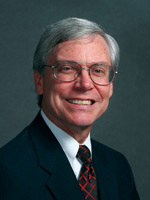
Cover your basis: Hedging real estate risk
Since the turn of the millennium, real estate has become one of the fastest growing investment sectors, not just in the United States but globally as well. But as much as we would like to think otherwise, there’s considerable risk involved in real estate investing. One way to ameliorate that risk is through hedging practices, according to Robert Edelstein, a real estate professor at the Haas School of Business at the University of California, Berkeley, and Anthony Sanders, the Bob Herberger Arizona Heritage Chair in Real Estate and Finance at the W. P. Carey School of Business.






